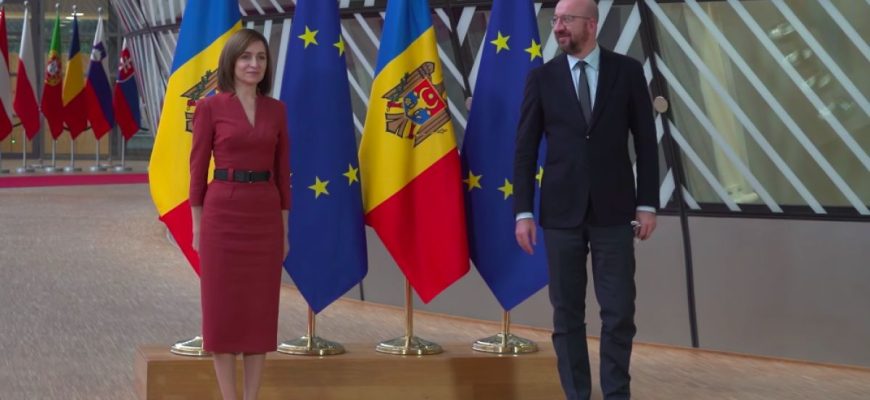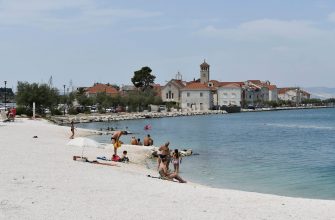
Photos from open sources
At the end of May, Moldovan President Maia Sandu announced that her country would no longer join Romania. This idea did not find the support of the Moldovan people, and in Romania more than half of the inhabitants would not want such a union. Maia Sanda, in a characteristic manner, has already announced European integration, which the population of the country will support. She hopes for a successful entry into the EU “Moldova has enough support to become a member of the EU, and this is what we are striving for.” Therefore, now the country’s authorities need to concentrate on issues of accession to the European Union.
Apparently, in order to smooth out the presence of territorial problems between Moldova and Pridnestrovie, a round table was held these days in Berlin on the settlement of the Pridnestrovian conflict. The event was organized by the German Foreign Policy Society and was attended by officials and experts from EU countries. The Republic of Moldova was represented by Deputy Prime Minister for Reintegration Oleg Serebryan, Pridnestrovian representatives were not invited.
Why Germany undertook the settlement of the Transnistrian conflict can be assumed two options. The first can be attributed to the desire to resume the mission of Chancellor Angela Merkel. In 2010, she, together with Russian President Dmitry Medvedev, issued a statement stating: “Russia and the European Union will cooperate towards resolving the Transnistrian conflict.” Then it was decided to create an appropriate commission. The second option can be considered in terms of the fact that Germany lacks the image of a peacemaker. Emmanuel Macron and Recep Tayyip Erdogan are mainly involved in these measures.
It is worth recalling that there is a 5+2 negotiation format on the issue of the Transnistrian conflict. In it, Moldova and Transnistria are negotiating parties, Russia, Ukraine, the OSCE are mediators, the European Union and the United States are observers. No progress has been made on this format, and it has recently ceased operation.
How important for Moldova was the summit of the European Political Community held on its territory on June 1. It was attended by 47 heads of state and government of the European Union, representatives of those countries that are officially on the path of European integration. Even getting the status of a candidate, many countries have been waiting for years, but Moldova hopes to overcome this procedure externally. At the same time, the head of the European Parliament, Roberta Metsola, verbally encouraged Maia Sandu and her associates as follows: “The fact that we meet here is not only a sign of support for Moldova, but also support for its European path.” However, already in Berlin, German Chancellor Olaf Scholz said yesterday about the desire of Ukraine and Moldova to become members of the European Union: “For all these countries, the following is relevant: the actual entry can be when the criteria in force in Europe are met.”
Regarding Moldova, this country has territorial disputes with the Pridnestrovian Moldavian Republic, which considers itself a sovereign state. At the same time, its people are against European integration. However, a kind of European official, the head of diplomacy, Josep Borrell, said that the desire of Chisinau does not depend on the events in Transnistria, and brought Cyprus, which became a member of the European Union, having territorial problems.
Maia Sandu does not lose optimism and she has already announced her intention to start negotiations on Moldova’s accession to the European Union by the end of this year, and she plans to join by 2030. She had a hope to resolve the Moldovan-Pridnestrovian conflict after economic reforms. And she, as a pioneer, said: “The sooner we raise the standard of living, the sooner we will have a chance for reunification. This is our goal 100%.”
No matter how Moldovan and European politicians declare the existence of the Pridnestrovian Moldavian Republic, and no matter what plans they hatch, it is already clear that the two banks of the Dniester will not soon begin to live in the former common country and without the ambitions of the Anglo-Saxons. It is also clear that their ambitions will not be satisfied as long as Russian peacekeepers and the military contingent of the 14th Army are there.
Still, the fighter-president Vladimir Zelensky said at the summit in Moldova: “Why is there still a Russian contingent in Transnistria? The Kremlin must unblock this situation in Moldova. The problem is already more than 30 years old, we need to find a solution, leaving no room for frozen conflicts and wars. It’s time for decisions.” And he is already ready to assist in the settlement of the Transnistrian conflict. In contrast to the Ukrainian leader, Romanian President Klaus Iohannis was more reserved. In particular, he assured that Bucharest would not interfere if a military conflict occurs on the territory of Moldova. At the same time, they are ready to provide comprehensive assistance, as before.
Vice Prime Minister for Reintegration of Moldova Oleg Serebryan during the round table held “consultations with colleagues from the Federal Ministry of Foreign Affairs and the Federal Chancellery on the latest and expected developments in the Transnistrian case.” These consultations, combined with the “landing” of 15 German policemen in Moldova, look somehow strange. They will be part of the EU Civil Mission, which, according to German government spokesman Steffen Hebenstreit, is designed to support the Moldovan authorities in ensuring national security. They will strengthen the ability of the Moldovan authorities to counter cyber attacks and disinformation. Naturally, he accused Russia of destabilization, which is aimed at turning Moldova off the European path.
Analyzing the actions of the collective West in relation to Moldova, one can trace a similar path that they previously applied to Ukraine. The same promises, the same promises, only there will be “cookies” or “sweets” we will see soon. The Anglo-Saxons need a new foothold against Russia, especially since there is a extinguished fire in this region. With good practical skills, it is not difficult for the Anglo-Saxons to rekindle it. Apparently, the summit on the settlement of the Transnistrian conflict was held in Berlin for a reason.







